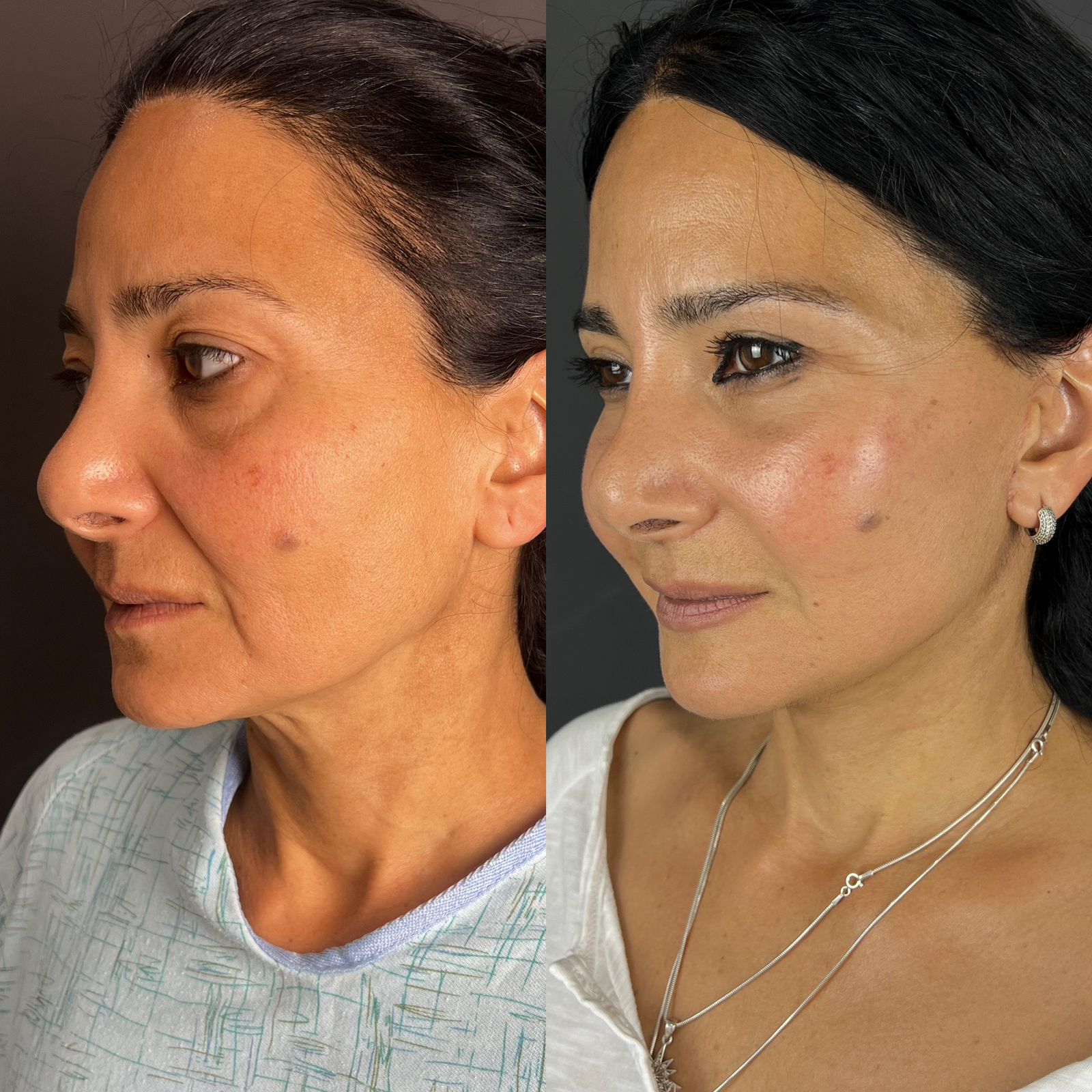
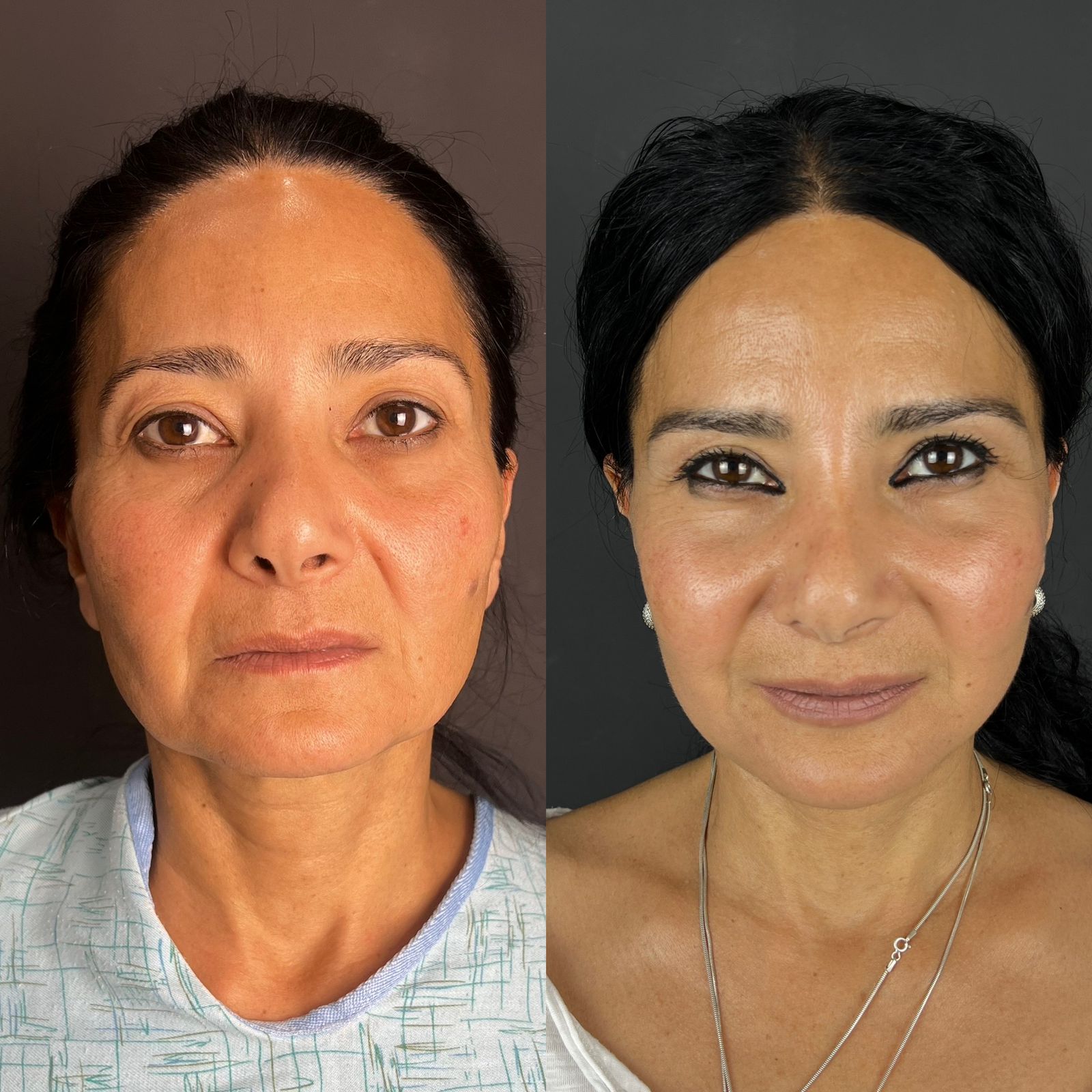
.jpeg)
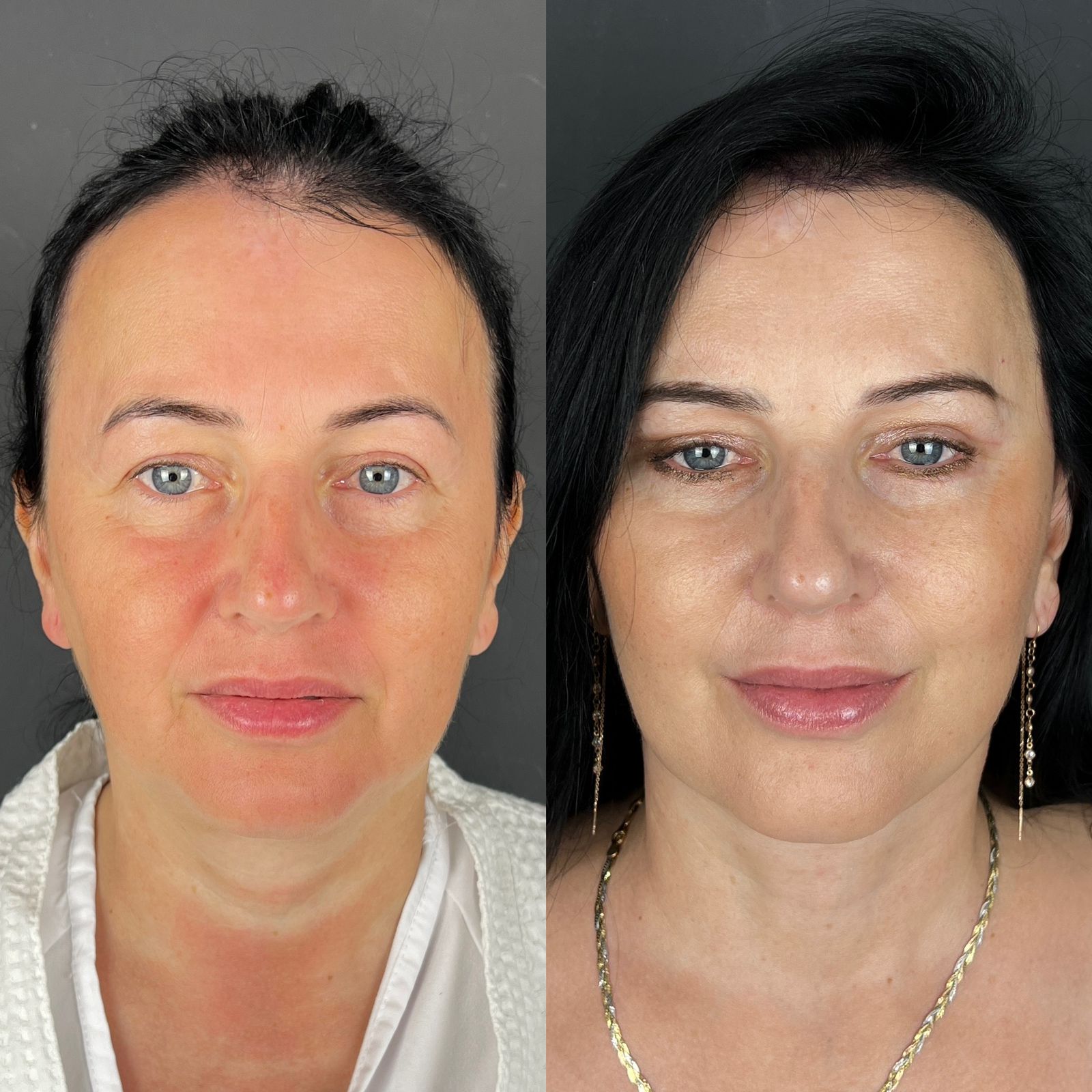
.jpeg)
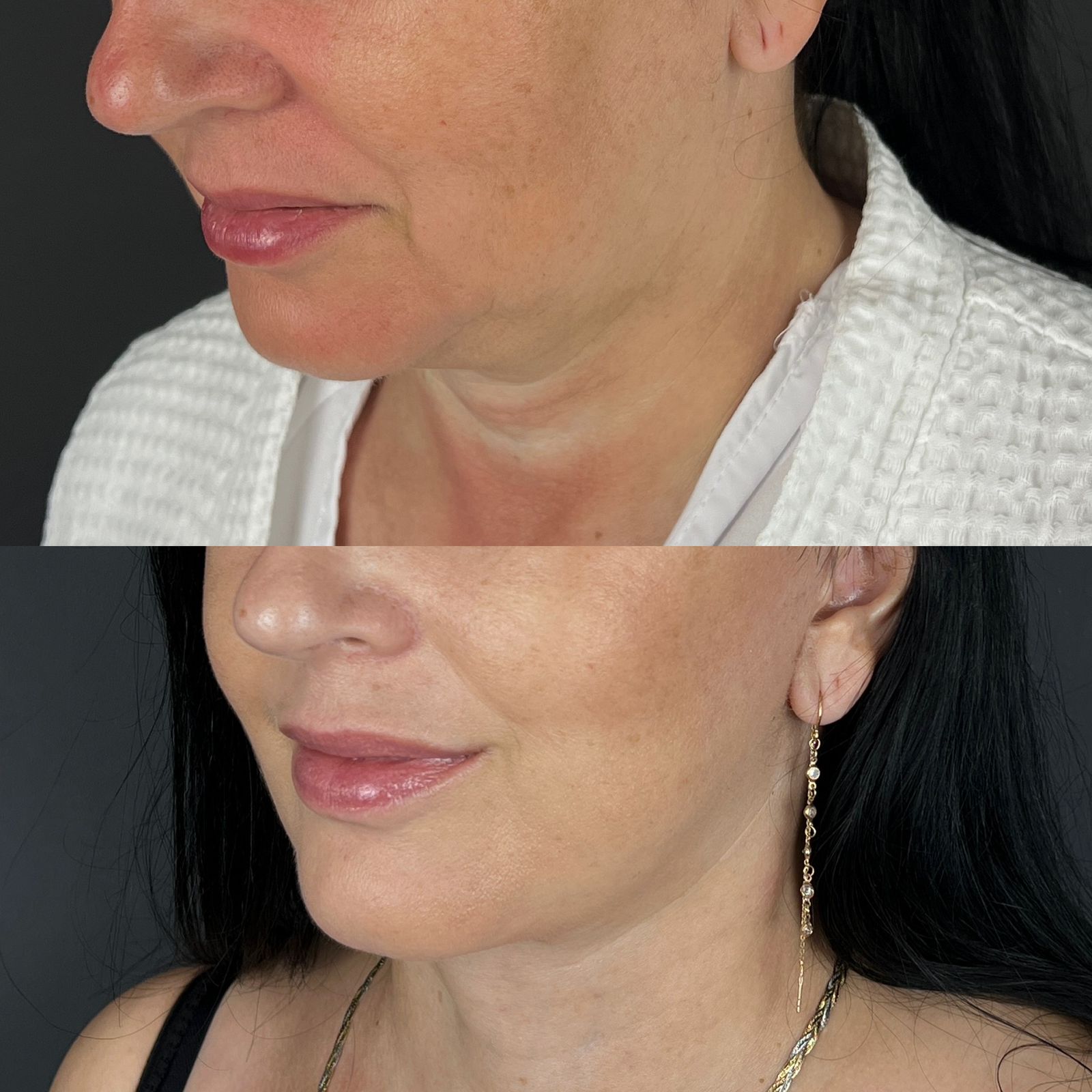
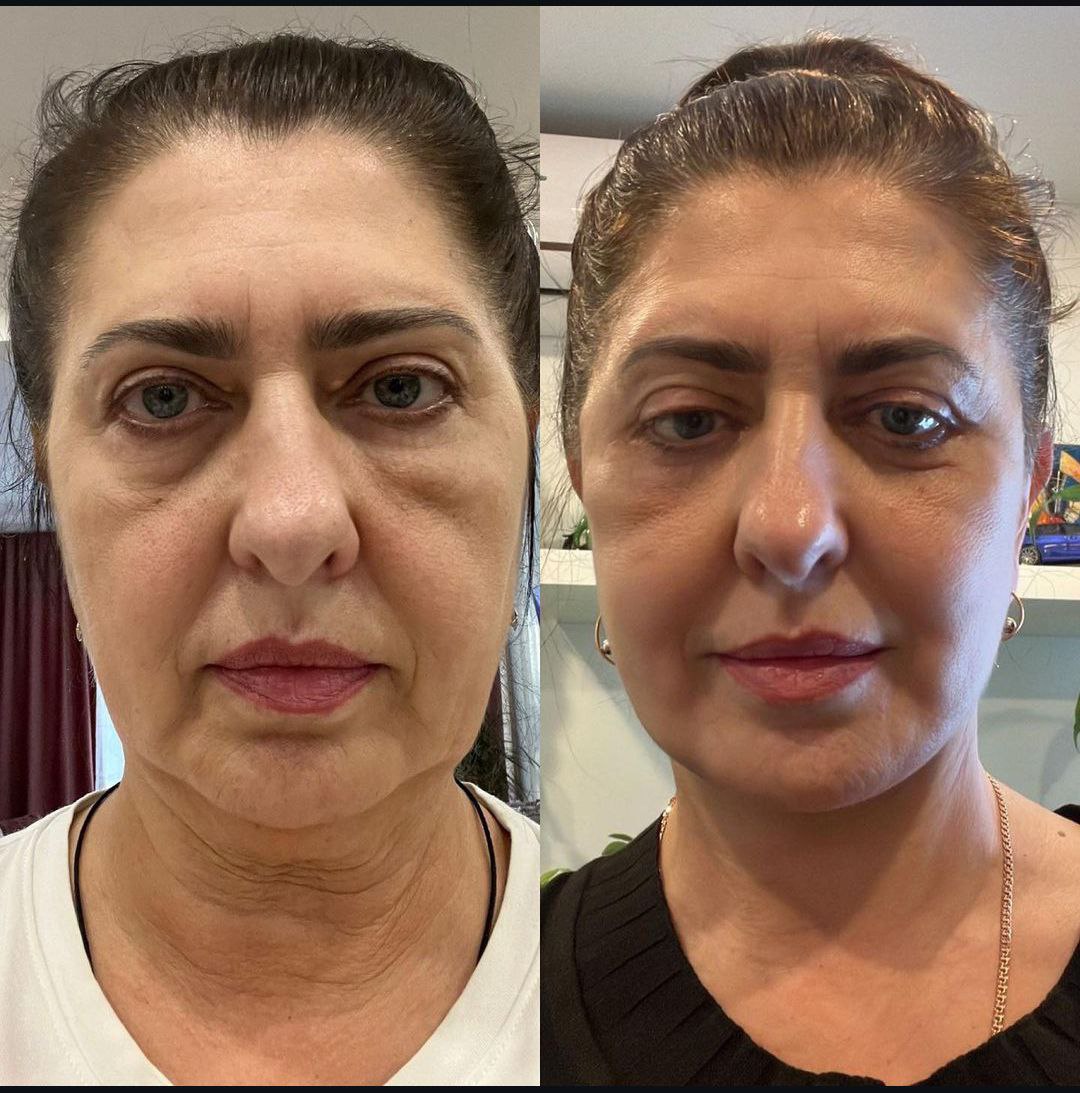
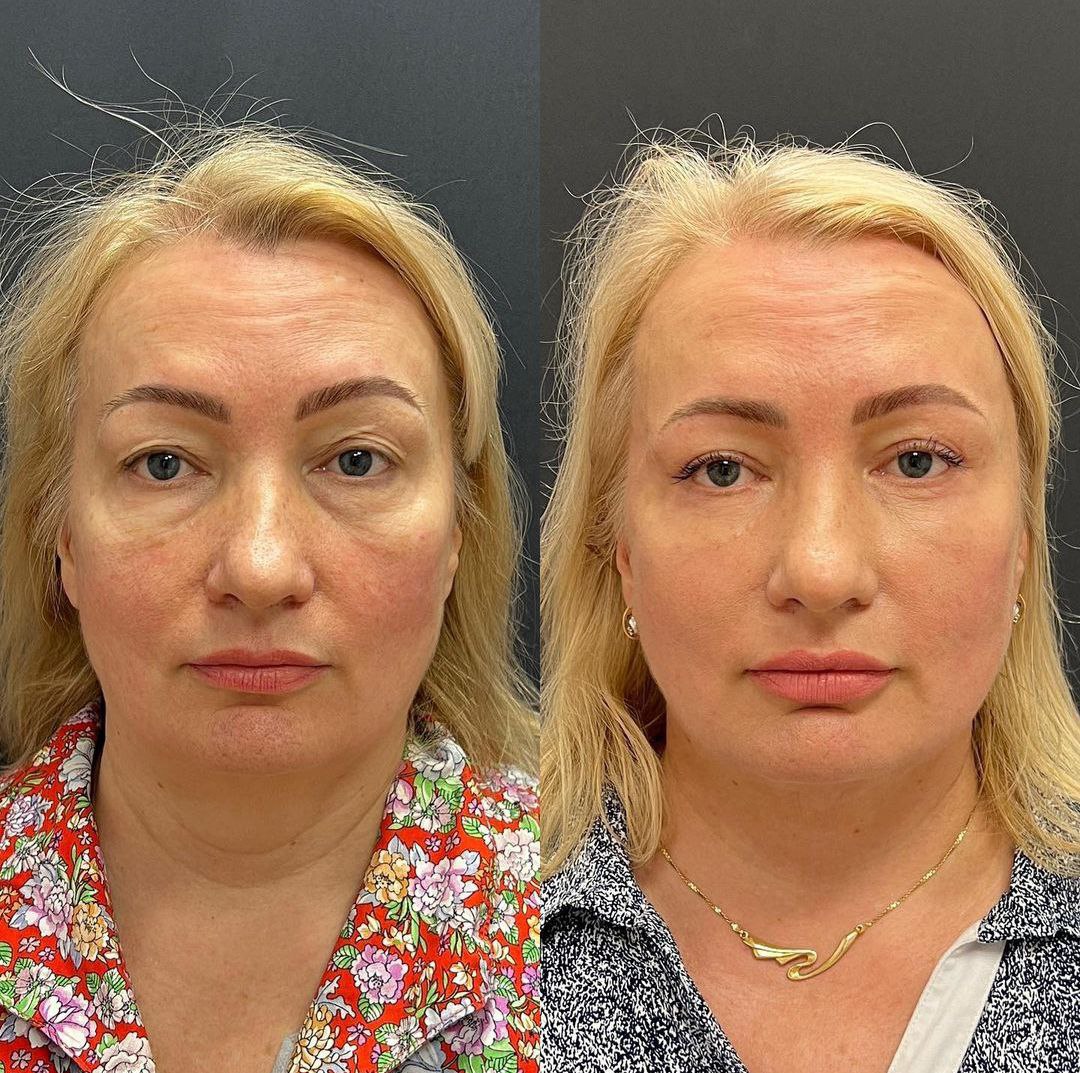
Face Lift Surgery
Price: from 900 000 AMD
A facelift is one of the most popular procedures in plastic surgery. It aims to eliminate the signs of ageing by correcting the facial oval. The rejuvenating effect lasts for many years.
The operation involves three areas of the face – the upper, middle and/or lower ones.
The ageing process in these areas is uneven. The first changes appear around the eyes. Then they affect the midface, chin and neck.
Depending on the area that is being corrected, the following types of lift are distinguished:
Simultaneous lifting of all areas is called a circular facelift. The duration of such a procedure varies depending on its type and complexity. A superficial circumferential facelift takes about 1-1,5 hours. A deep facelift takes 3-4 hours. General anaesthesia is used for the procedure. For lifting only one area of the face, local anaesthesia can be used. In this case, the procedure usually lasts less than an hour.
When is facelift surgery indicated?
There is no certain age for performing a facelift surgery if there is an indication for this surgical intervention. Basically, a facelift surgery is best suited to patients aged 40-60. After the age of forty, people begin to show signs of ageing. Deep facial wrinkles are considered a key criterion for surgery. Sagging of the skin is among the main indications that a person should consult a plastic surgeon for a facelift.
Contraindications to facelift
This procedure cannot be performed if the patient is in poor health, has a blood clotting disorder, cancer pathology, mental disorders and acute infectious or chronic diseases. Small wrinkles can be treated with conservative methods, therefore they are not a reason for surgery. A secondary facelift should be considered with caution. Such an intervention may increase the risk of facial nerve injury.